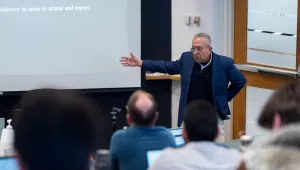Translating the Lessons of the Northern Ireland Peace Process to the Israeli-Palestinian Conflict
The following study is an analysis of in what ways, and to what extent, there are lessons to be learned from the relatively successful Northern Ireland peace process of the late 1990s that can be applied to the currently stagnant Israeli-Palestinian peace process. Our findings, based on more than one year of primary research and interviews with dozens of government officials and participants in the Northern Irish peace process, indicate that there are indeed a number of general lessons in peacemaking and conflict resolution from the Northern Ireland experience that should inform future approaches to the Israeli-Palestinian conflict. Chief among them are the importance of political leadership, an inclusive negotiation framework, a strong public desire for peace, active U.S. involvement, the internationalization of the peace process, economic gains, and good timing. In addition to exploring how many of these lessons could –and should—be applied in the Israeli-Palestinian conflict, and in recognition of the importance of Irish-American support for the peace process in Northern Ireland, this study also explores the normative role of the Palestinian and Israeli diasporas, as well as the Irish-American community, in helping Israelis and Palestinians achieve a lasting peace of their own.
Kuritzky, Melinda and Brendan Rivage-Seul. "The Language of Peace: Translating the Lessons of the Northern Ireland Peace Process to the Israeli-Palestinian Conflict." The Dubai Initiative Student Research, Belfer Center for Science and International Affairs, April 2010.



